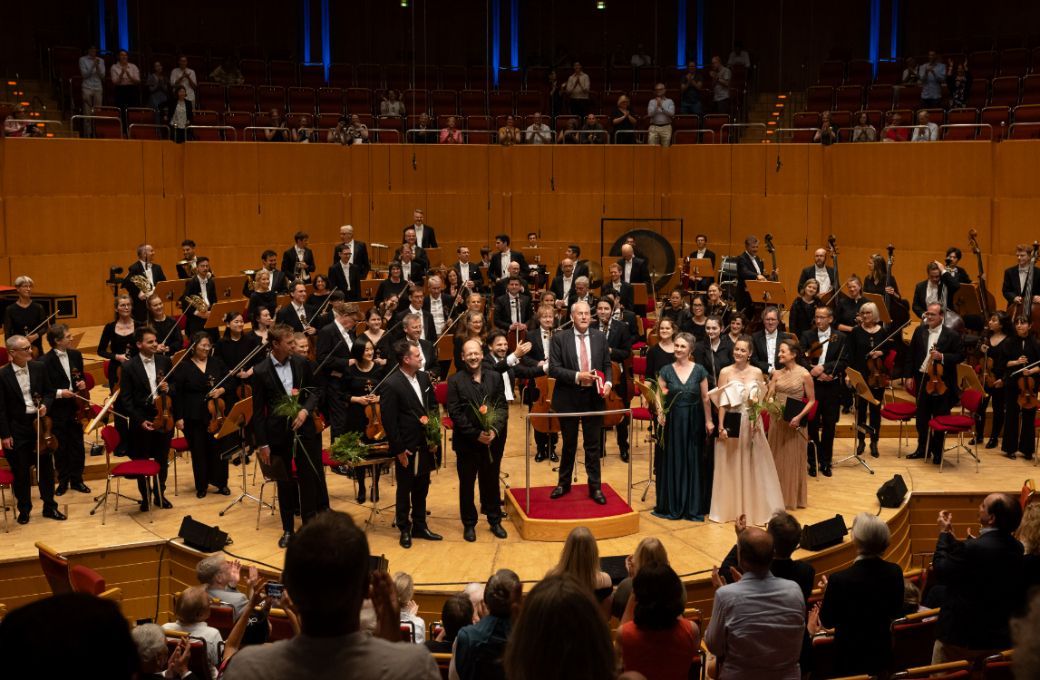It was with good fortune that my travel plans overlapped with those of the Deutsches Symphonie-Orchester Berlin in Köln on the evening of 29 June, affording the opportunity not just to hear the orchestra but to visit the beautiful Kölner Philharmonie hall, which was celebrating the tenure of departing artistic director Louwrens Langevoort.

The concert opened with Schönberg's too rarely heard Chamber Symphony no. 1, a riot of romance and excitement, delicate phrases nestled between bold orchestral statements, all of which rang clearly in the wonderful acoustic space of the 1986 hall. Cornelius Meister led the orchestra through shifts in dynamic and tempo like he was delivering a monologue; some came with logical builds and others in surprising shifts, giving a lively, gripping and animated reading. The singing of flutes and reeds near midpoint was sheer beauty.
Fine though it was, it seemed a prologue for soprano Hanna-Elisabeth Müller, who animated the rest of the program. She delivered Unsuk Chin's surprising Puzzles and Games from Alice in Wonderland at times like a troubadour (with a striking sense for fashion), at others in vibrant sprechgesang, and always with a dramatic flair. The eleven narrative sketches (plus instrumental overture) are more bitter than sweet, closer to episodes than songs, with text co-written by Chin and David Henry Hwang. They don't aim to be Victorian, even when the harp and harpsichord are prominent, and don't pretend to be for children (although they do recall the horrors to which children were once routinely put). The orchestration is rich, sometimes stormy, sometimes reduced to a whisper, sometimes bouncing along in a jaunty dissonance. The set was attacked without pause, Meister poised to pounce as each fed in to the next. Müller took on the tongue-twisting tangle of rhymes in Twinkle Twinkle with aplomb. The final Speak Roughly to Your Little Boy was propelled by five percussionists, with snare cracks and timpani rolls, for an enthralling conclusion.
Cellos and bass filled the room after the interval and at the beginning of Mahler's Fourth Symphony, falling into imbibing syncopation with the horns before the first of several eminently recognizable themes emerged. The symphony has grown in popularity with use in films and television shows and likely enough because it's more easily digestible than the typical Mahler feast. It's full of distinct pleasures, like tiny blossoms in a clover field. The twirling, three-count devil's dance of the second movement holds particular appeal. The third movement was handled with grace, slowly and forever unfolding until revealing deep undertones, closing and opening again, ultimately startlingly so.
And yet, having heard Müller once already, the power and the pageantry seemed another prologue as she sat amongst the strings waiting to rise again and sing. At last she stood, resplendent while imparting the sad vision of heaven. If Alice was about character, here she was called upon to sing to the ages, to carry truth on gossamer threads, and she did so like an angel, rising above the orchestra without overplaying when they receded.
"We revel in heavenly pleasures", Müller sang, although of course in German, "Leaving all that is earthly behind us. No worldly turmoil Is heard in heaven; We all live in sweetest peace". Having not yet heard the music in heaven, this evening seemed a reasonable, earthly approximation.


